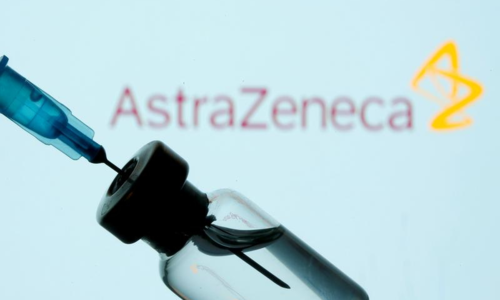India has found 26 suspected cases of bleeding and clotting among recipients of the AstraZeneca vaccine, the health ministry said on Monday, describing the risk as "minuscule" out of the 164 million doses administered.
Some countries have suspended or restricted use of the shot over fears of possible side effects, though health experts have said its benefits outweigh the risks.
This is the first time India has reported any serious reaction to the use of the vaccine, branded locally as Covishield.
India's adverse events committee reviewed 498 instances of serious and severe side effects following the injection of the shot, the ministry said, 26 of which were potentially "thromboembolic" — meaning the formation of a clot in a blood vessel that might break loose and plug another vessel.
The ministry said the rate of these events in India was about 0.61 per million doses, much lower than Britain's four and Germany's 10.
"Bleeding and clotting cases following Covid vaccination in India are minuscule and in-line with the expected number of diagnoses of these conditions," the ministry said in a statement that cited data from the committee.
The vaccine "continues to have a definite positive benefit risk profile with tremendous potential to prevent infections and reduce deaths due to Covid-19", it said.
The ministry did not give details on the nature of the clots.
The committee found no clot-related reactions after the use of domestically developed Covaxin vaccine, of which nearly 19m doses have been given in India.
Pakistan receives first batch of AstraZeneca doses
Pakistan received its first shipment of Oxford-AstraZeneca Covid-19 vaccines through the Covax facility on May 8.
A statement issued by the National Command and Operation Centre had said that the first consignment consisted of 1,238,400 vaccine doses and would be followed by an additional 1,236,000 doses in a few days. It had added that the doses would serve to support the government's "ongoing historic drive to bring the pandemic to an end".
"Further allocations from June onwards will be confirmed in due course. The goal of the Covax facility is to supply Pakistan with enough doses to vaccinate 20 per cent of the population depending on availability."
Pakistan is offering Astrazeneca vaccine to all adults over 40 years of age. This decision is based on WHO's recommendation of considering local epidemiology (including incidence and mortality from Covid-19 disease), age groups targeted for vaccination, data on vaccine adverse effects and the availability of alternative vaccines.
Also read: All you need to know about Covid vaccines in Pakistan














































